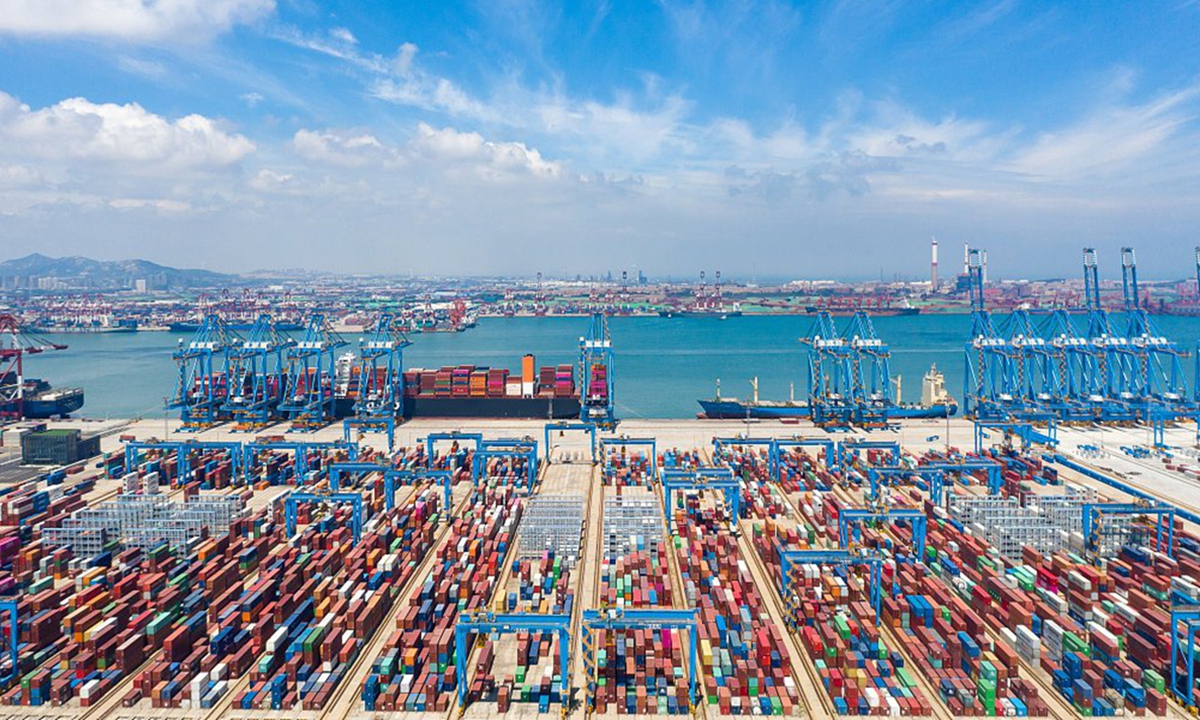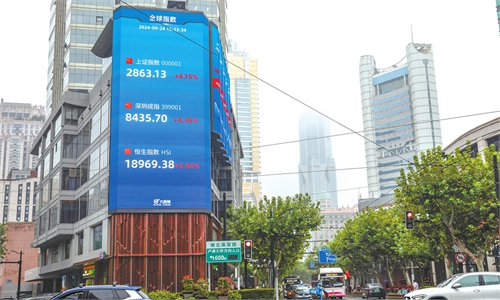The next chapter for the world economy remains optimistic about China: Global Times editorial

Photo: VCG
The Political Bureau of the Communist Party of China (CPC) Central Committee held a meeting on Thursday to analyze and study the current economic situation and make further arrangements for economic work. Xi Jinping, general secretary of the CPC Central Committee, presided over the meeting. It was noted at the meeting that the fundamentals of the Chinese economy, and favorable conditions such as a vast market, strong economic resilience and great potential remain unchanged. At the same time, new situations and problems have emerged in the current economic operation. It is necessary to take a comprehensive, objective and calm view of the current economic situation, face the difficulties squarely, remain confident, and effectively enhance the sense of responsibility and urgency to do a good job in economic work, said the meeting.The meeting made specific arrangements on how to enhance countercyclical fiscal measures, assist enterprises in overcoming challenging circumstances, and address people's basic living needs. In the face of risks and challenges, the CPC Central Committee skillfully navigates and manages complex and difficult situations, which is the greatest source of confidence and assurance for the Chinese economy.
In recent days, China has launched a series of policy "combinations" to support the high-quality development of the economy, "making a splash in global markets," as Reuters pointed out. China's Shanghai Composite Index closed above 3,000 points on Thursday, while trading volume at the Shanghai and Shenzhen bourses reached a total of 1.1625 trillion yuan ($165.6 billion). International financial institutions, including Goldman Sachs, UBS Group and Morgan Stanley, are all optimistic about the prospects for Chinese assets. The industry generally believes that the dividends beyond expectations, brought about by the policies, have significantly boosted the market.
Not only did China, but most Asia-Pacific stock markets close higher on Thursday. All 33 industry sub-indexes on the Tokyo Stock Exchange in Japan saw gains, and the Korea Composite Stock Price Index rose by 2.88 percent. The positive effects have also spread to European stock markets, commodity markets, and the currency markets of emerging economies. This reflects confidence in the fundamentals of the Chinese economy.
The CPC Central Committee's grasp of the economic situation and its underlying principles, as well as the timely introduction of a series of favorable policies, once again reflect two fundamental facts: First, the Chinese economy possesses strong resilience and immense potential, with various policy tools under institutional advantages ensuring a stable and positive economic operation. Second, there are broad and profound connections between the Chinese economy and the world economy. China can only do well when the world is doing well. When China does well, the world will get even better.
Seeking truth from facts and being pragmatic allows for a profound understanding of macro trends while also focusing on practical issues; it enables resilience against short-term fluctuations and fosters long-term development. This attitude has ensured that the Chinese economy has achieved remarkable results over the past few decades. Every development stage has presented various challenges, with no ready-made textbooks to follow. There are also many external opinions and "predictions." However, ultimately, there is a generally upward development trajectory, accompanying China's historic leap from poverty to becoming the world's second-largest economy.
Today, China, which is in a new stage of development, is not solely focused on growth rates but places greater emphasis on "effectively upgrading and appropriately expanding China's economic output." While ensuring that growth, employment, and prices do not experience significant fluctuations, and effectively preventing and resolving major risks, China remains steadfast in its commitment to high-quality development. In response to the challenges and difficulties faced by the economy, China adheres to the principles of pursuing progress while ensuring stability, promoting stability through progress, and establishing the new before abolishing the old. Relevant policies and measures have been introduced in a timely, orderly, and effective manner, showcasing China's interconnected strategic layout in the process of further deepening reform comprehensively, while also highlighting the stability and continuity of its economic policies. As some economies become increasingly shortsighted, China's macroeconomic policy demonstrates resilience, with a rich toolbox of policy instruments capable of addressing various internal and external uncertainties.
Regarding the global market dividends resulting from favorable Chinese policies in this round, international public opinion, especially from the US and the West, has relatively been positive. There has been less negative commentary. Some foreign media outlets have even highlighted the sound performance of economies and industries closely linked to the Chinese economy during this wave of positive developments, indicating that they are well aware of China's contributions to the global economy and the logical reasons why "decoupling" is impossible. Previous judgments and reports were often driven by negative political needs regarding China rather than an accurate representation of facts.
Currently, a new cycle of confidence surrounding the Chinese economy is emerging. The dividends it generates in the international market and global economy are welcomed by the vast majority. This also reiterates that the pessimistic narratives about the Chinese economy are not only a misreading of reality but also harmful to overall confidence. China will continue to demonstrate its resilience and execution capability, proving that the next chapter for the world economy remains optimistic about China.


